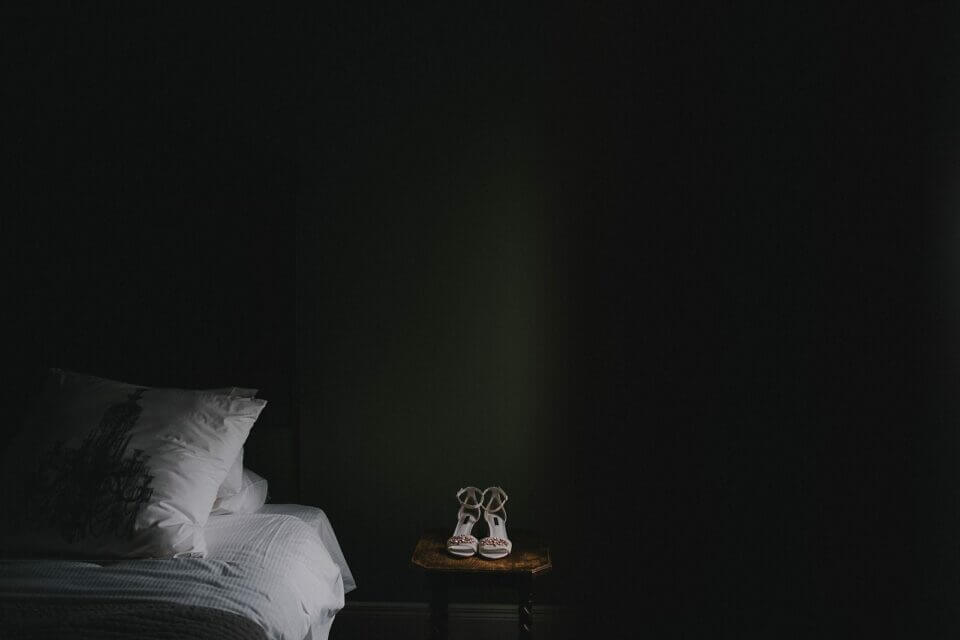
“Yet there is no one thing, no attribute/Of yours that I can fix on, nothing/I can abstract, describe, isolate…”
Attraction
Do you know how beautiful you are
To me? And it is more than features,
Physique, your bearing—although all
These are fine in you, and I admire such
Qualities of your person, your presence—
Yet there is no one thing, no attribute
Of yours that I can fix on, nothing
I can abstract, describe, isolate,
That might answer, explain, this
That I feel, in my response to you.
So is your beauty—the quality I can
Only partly see—is this merely untethered
Functioning in me? No more than the usual
Concurrence of sexual excitement? Perhaps
Avoidance, a screening, of the unadmitted,
Hidden—the chosen shortfalls, regrets
In myself—in the hope, imagining, of grace,
Redemption, via another in my life?
Then reaching for you in my admiration,
My desire, would be mere personal escape.
It can’t be this—or any such explanation—
As long as you retain the character
You have, of having no dependence
On anything in me. And this is not
That tendency to pedestal the female,
To form an object of worship versus
The diminishing: It is, I sense, that your
Beauty is an alteration in the world,
An event attached to you, that you,
As yourself, could never be aware of.
Bedroom
Your high heels, the flare, the pleat and
Pattern of your skirt, the lace and pastel—
The subtle sheen—the very flimsiness—
Of your underwear: Why should these—
The stereotypes of female dress—matter
In the least to me? And yet they do:
They fascinate, excite, arouse in me
The impulse and content of reverie,
Wonder, about what it is that presents you
In this compulsion, this actuality, to me.
True, these have your choice, your taste,
But, true too, they would be interchangeable
With those of another: They are the covering,
The additional, the superficial stimulation
In social mores, disclosed in the personal:
And yet, these that hide and reveal,
Which do they do more? Is it that you,
Without such femininity in periphery,
Would be mere body, a commonality,
Or do these falsify, hide, the unique in you?
I look and think now that there can be no
Knowing of another without acceptance of
Partition, obtrusion, in between: And so
The concealing, the positioning of fabric—
Delicate as it may be—is essential
To revelation, and there can be nothing
Known but it will, must be, appearance
Only, some dressing of the naked,
Or that there is no nakedness, but all
Is as your nylon, cotton, lacework, is.
Adventure
The mound of flesh between your thighs,
Its soft covering of hair, lips that open
As if to kiss, your warmth, your invitation,
Are more than body—although your own,
Not any—but are the mystery of all
Disclosure, revelation, the opportunity
Of entry into experience, knowledge,
Of the created, the world in another, and
The world briefly inhabited, loved in its
Materiality, known as yours, nothing other.
Surrounded by you, held in the clasp
Of difference, in which I move and you,
Accepting of me, respond, moving too,
I am figured in an immensity of wonder,
A part of what I am not, an imagined and
Material being, allowed to play in both,
And alive, it seems, in and beyond myself:
In and beyond you, as a free traveler
In self and world, rediscovering what is
Known, and that I visit, never inhabiting.
So you are discovery to me, new evidence
Of the mortal, reassurance that its fact,
Its brevity, is no failure of the beautiful, but
Consequence of the human, of the limits
Set to my existence, as always being other—
One formed in passing, stilled in activity,
Fulfilled always in the incomplete
Of seeming possibility—yet is an engagement
Of vitality beyond comprehension, that
Has its own life in this humble vessel.
Union
Your femaleness obsesses me, that we
Are alike and yet other in a common
World: Or my obsession may be a wonder,
Question, a doubt, about the world:
That it can be, and yet not be the same
For one and for another, for you and
For me. Or do we, in being together,
Bring the world into wholeness, complete
The parts in each other, overcoming its
Division, grounding what is in what is not?
How abstract all my thinking is: a means,
Or an attempt, to solve something without
Solution: that what is, is, with no explanation,
But remains always in its otherness, as you
In being female, and this—my constant
Attempt to know you—is both will, and
Failure of will, to enter into the difference
Of the world, and my penetration of you—
Body into body in willing combination—
Intensifies separation even as it joins.
Being within you, hidden in your flesh,
Mouth to mouth, in our close embracing,
Presses at the impossibility of surmounting
Physicality, yet enacts thought and feeling,
That you and I are one—a state we know
In our mutuality of word and action,
Every gesture of our caring—and is, thus,
Our allowed participation in that plenitude
Of love where male and female have no use,
No meaning, and are not parts of life.
Harold Jones is a New Zealander, educated at Cambridge University, where he was awarded an Exhibition to read English. For 20 years and, more recently, another ten, he sent no work for publication, preferring to work at its development. His work has appeared in major poetry journals in the United Kingdom and New Zealand, and has won the attention of leading critics and poets, among them, Ted Hughes: “I hear a real voice, a real movement of mind cutting through resistances.” Recent work appears in Merion West and VoegelinView.











